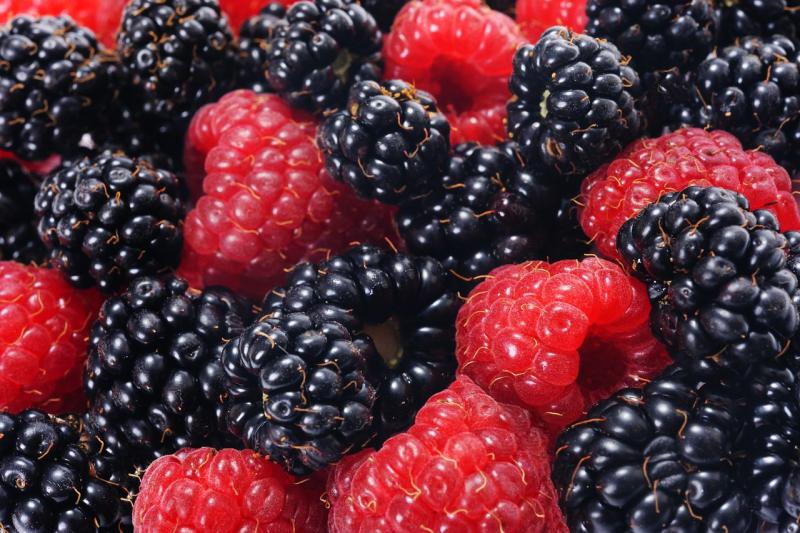Vitamins have been around for a long time, even before we knew what they were. Ancient cultures had their own ways of recognizing the benefits of certain foods, often through trial and error. For instance, ancient Egyptians used a variety of herbs and plants for medicinal purposes, not fully understanding their vitamin content but knowing they worked.
In traditional Chinese medicine, different foods were believed to balance the body’s energies. Foods rich in vitamins were seen as vital for maintaining health and were often prescribed to wards off illness. They might not have called it “vitamins,” but they certainly had a grasp on the importance of nutrition.
Over in ancient Greece, philosophers and physicians like Hippocrates emphasized the role of diet in health. They would notice that those who ate a variety of fresh fruits, vegetables, and grains seemed healthier and more robust. Little did they know, they were tapping into the benefits of vitamins long before the science explained it all!
Indigenous cultures around the world also valued certain foods for their health benefits. For instance, many Native American tribes harvested seasonal fruits and roots, which were packed with essential nutrients and vitamins. They understood that these foods played a crucial role in their overall well-being and taught their community about the importance of a balanced diet.
Discovering Vitamins in the 19th Century
The 19th century was a turning point in our understanding of vitamins. Before this time, people didn't really know about the vitamins and nutrients that food contained. It was more about trial and error—some folks who ate certain foods felt better, but there wasn't much scientific explanation behind it.
In the early 1800s, scientists began to take a closer look at what was in our food. They started discovering that certain diseases were linked to dietary deficiencies. For example, sailors who spent long periods out at sea often suffered from scurvy, which we now know is due to a lack of vitamin C. The solution? Fresh fruits and vegetables! This was one of the first hints that what we eat really impacts our health.
By the late 1800s, researchers like Casimir Funk were digging deeper. Funk is credited with coining the term "vitamine," which comes from “vital amine.” This was the idea that certain compounds in our diet are essential for life. He discovered that components in our food not only prevent diseases but also promote overall well-being.
As the century rolled on, more vitamins were identified, each associated with specific health benefits or deficiencies. For example, vitamin A was linked to vision, while vitamin D was vital for bone health. People’s awareness started to change; they began realizing that a well-rounded diet wasn’t just about filling your stomach but also about nourishing your body in a balanced way.
Modern Understanding of Vitamins
Fast forward to today, and our understanding of vitamins has come a long way. We know they’re essential for keeping our bodies healthy and functioning well. The range of vitamins, from A to K, each has its own important role to play. For example, vitamin D helps our bones absorb calcium, while vitamin C supports our immune system. It's amazing to think that these tiny compounds can have such a big impact!
One of the most exciting breakthroughs in modern nutrition is the recognition of how vitamins interact with each other and how they affect our overall health. No longer do we see vitamins in isolation; we understand that they work best together. For instance, vitamin E and vitamin C team up to fight off free radicals, which are harmful compounds that can damage our cells. Understanding these relationships helps us make better dietary choices.
The rise of supplement culture is also worth mentioning. Many people turn to vitamins in pill form to ensure they’re getting everything they need. While this can be helpful, nutritionists often stress the importance of getting vitamins from whole foods, like fruits, vegetables, and whole grains. These foods not only provide vitamins but also offer fiber and other nutrients that supplements just can't match!
As we learn more about vitamins, personalized nutrition is becoming a growing trend. Some health professionals are now suggesting vitamin regimens tailored to individual lifestyle and health conditions. This means that instead of the one-size-fits-all approach, you might find yourself taking specific vitamins designed for your unique needs. It’s an exciting time to be learning about how to nourish our bodies better!
The Future of Vitamin Research
As we move into the future, vitamin research is evolving faster than ever. Scientists are diving deeper into how vitamins not only boost our health but also play a role in preventing diseases. We're starting to see more studies looking at how different vitamins interact with one another and the body, which could change the way we think about supplementation.
One exciting area is personalized nutrition. Rather than a one-size-fits-all approach, researchers are beginning to explore how our unique genetics and lifestyles affect our vitamin needs. Imagine getting tailored recommendations on which vitamins would benefit you most, based on your DNA or daily habits! This could mean more targeted and effective health strategies.
There's also a growing focus on plant-based and natural sources of vitamins. As we become more conscious about our food choices and their impact on the planet, there's a push towards foods that are rich in vitamins. Expect to see more innovative food products popping up that pack a vitamin punch, making it easier to nourish our bodies while being kind to the Earth.
Plus, with advancements in technology, methods for tracking and measuring vitamin levels are becoming more accessible. Apps and devices that help monitor your vitamin intake could soon be part of our everyday lives, leading to better health outcomes for everyone. Keeping tabs on your vitamin levels may be easier than ever!



